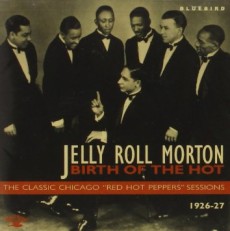
Daily Dose Of Jazz…
Jelly Roll Morton was born Ferdinand Joseph LaMothe on October 20, 1890 into a common-law creole of color family in the Faubourg Marigny neighborhood of downtown New Orleans, Louisiana. He started playing music as a child, showing early talent. After his parents separated, his mother married a man named Mouton and anglicizing it changed it to Morton.
At the age of fourteen, Morton began working as a piano player in a Storyville brothel, then known as a sporting house. In that atmosphere he often sang smutty lyrics and it was there he took the nickname “Jelly Roll”, which was African American slang for female genitalia. While working there, he was living with his religious, church-going great-grandmother; he had her convinced that he worked as a night watchman in a barrel factory. After Morton’s grandmother found out that he was playing jazz in a local brothel, she kicked him out of her house. However, Tony Jackson, also a pianist at brothels and an accomplished guitar player, was a major influence on his music.
Around 1904, Jelly Roll started touring in the American South, working with minstrel show, gambling and composing. He moved to Chicago in 1910 and New York City the following year where future stride greats James P. Johnson and Willie “The Lion” Smith caught his act, years before the blues were widely played in the North. His works Jelly Roll Blues, composed in 1915, has arguably become the first jazz song ever published. New Orleans Blues, Frog-I-More Rag, Animus Dance and King Porter Stomp followed as they were composed during this period. In 1917, he followed bandleader William Manuel Johnson Johnson’s sister Anita Gonzalez to California, where his tango The Crave, made a sensation in Hollywood. Returned to Chicago in 1923 to claim authorship of his recently published rag, “The Wolverines”, which had become a hit as “Wolverine Blues” in the Windy City. He released the first of his commercial recordings, first as piano rolls, then on record, both as a piano soloist and with various jazz bands.
In 1926, Morton succeeded in getting a contract to record for the largest and most prestigious company in the United States, Victor. This gave him a chance to bring a well-rehearsed band to play his arrangements. These recordings by Jelly Roll Morton & His Red Hot Peppers are regarded as classics of 1920s jazz. They featured Kid Ory, Omer Simeon, George Mitchell, Johnny St. Cyr, Barney Bigard, Johnny Dodds, Baby Dodds and Andrew Hilaire. And the group became one of the first acts to be booked on tour by MCA. Moving to New York City in 1928 he continued to compose and record for Victor with the aforementioned in addition to George Baquet, Albert Nicholas, Wilton Crawley, Russell Procope, Lorenzo Tio, Artie Shaw, Bubber Miley, Johnny Dunn, Henry “Red” Allen, Sidney Bechet,, Paul Barnes and Bud Freeman, Pops Foster, Paul Barbarin, Cozy Cole and Zutty Singleton.
During the Great Depression Morton lost his contract with Victor, struggled financially and took a job with a traveling burlesque show for steady income. In 1935, his 30-year-old composition King Porter Stomp arranged by Fletcher Henderson became Benny Goodman’s first hit and swing standard but Jelly Roll received no royalties from its recordings.
A move to Washington, DC saw him becoming the manager, piano player, master of ceremonies, bouncer and bartender of a bar located at 1211 U Street in the NW Black section of town called Shaw. Unable to make it a success due to the owner’s bad business decisions and being stabbed by a friend of the owner, Morton’s wife demanded they leave DC. Before his departure folklorist Alan Lomax invited him to record music and interviews at the Library of Congress, which ended after eight hours, though Lomax conducted longer interviews but only to notes without recording.
When Morton was stabbed and wounded, a nearby whites-only hospital refused to treat him, as the city had racially segregated facilities. Transported to a black hospital farther away it was several hours before being attended to and his recovery suffered, often he became short of breath. Worsening asthma sent him to a New York hospital for three months at one point and although he continued to suffer from respiratory problems when visiting Los Angeles, California with manuscripts of new tunes and arrangements, planning to form a new band and restart his career, pianist and composer Jelly Roll Morton passed away on July 10, 1941, after an eleven-day stay in Los Angeles County General Hospital. He was inducted into the Rock and Roll Hall of Fame, the Louisiana Hall of Fame and is a charter member of the Gennett Records Walk of Fame.
More Posts: piano
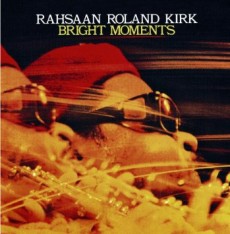
Daily Dose Of Jazz…
Rahsaan Roland Kirk was born Ronald Theodore Kirk on August 7, 1935 in Coumbus, Ohio and grew up in the neighborhood called Flytown. He felt compelled by a dream to transpose two letters in his first name to make Roland. He became blind at an early age as a result of poor medical treatment. In 1970 he added “Rahsaan” to his name after hearing it in a dream.
Rahsaan preferred to lead his own bands and rarely did he perform as a sideman, although he did record lead flute and solo on Soul Bossa Nova with arranger Quincy Jones in 1964, as well as drummer Roy Haynes and had notable stints with bassist Charles Mingus. His playing was generally rooted in soul jazz or hard bop but his knowledge of jazz gave him the ability to draw from ragtime to swing to free jazz. In additional to classical influences he borrowed elements from composers like Smokey Robinson and Burt Bacharach, Duke Ellington and John Coltrane.
His main instrument was the tenor saxophone and two obscure saxophones: the stritch, a straight alto sax lacking the instrument’s characteristic upturned bell and a manzello, a modified saxello soprano sax, with a larger, upturned bell. Kirk modified these instruments himself to accommodate his simultaneous playing technique. He also played flute, clarinet, harmonica, English horn, recorder and trumpet, as well as incorporating an interesting array of common items such as garden hose, alarm clocks and sirens.
At times Rahsaan would play a number of these horns at once, harmonizing with himself, or sustain a note for lengthy durations by using circular breathing or play the rare, seldom heard nose flute. Many of Kirk’s instruments were exotic or homemade, but even while playing two or three saxophones at once the music was intricate, powerful jazz with a strong feel for the blues. Politically outspoken, he would often talk about issues of the day in between songs at his concerts, such as Black history and the civil rights movement and lacing them with satire and humor. According to comedian Jay Leno, when he toured with him as his opening act, Kirk would introduce him by saying, “I want to introduce a young brother who knows the black experience and knows all about the white devils… Please welcome Jay Leno!”
In 1975, Kirk suffered a major stroke that led to partial paralysis of one side of his body. However, he continued to perform and record, modifying his instruments to enable him to play with one arm. He died from a second stroke on December 5, 1977 after performing in the Frangipani Room of the Indiana University Student Union in Bloomington, Indiana.
His influence went well beyond jazz to include such rock musicians as Jimi Hendrix, Ian Anderson of Jethro Tull, Eric Burdon and War, T.K. Kirk, Hope Clayburn, Jonny Greenwood and Ramon Lopez, all who idolized or paid tribute to, and David Jackson, George Braith and Dick Heckstall-Smith who took to playing multiple saxophones, and Steve Turre, Courtney Pine who utilizing his circular breathing during play. He left to us nearly four-dozen albums as a leader and another eleven with aforementioned Jones, Mingus and Haynes, and Tubby Hayes, Tommy Peltier, Jaki Byard and Les McCann.
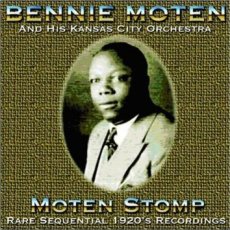
Daily Dose Of Jazz…
Bennie Moten was born on November 13, 1894 in Kansas City, Missouri. By the time he reached his mid-twenties he was leading the Kansas City Orchestra that was the most important of the itinerant, blues-based orchestras active in the Midwest at the time. The band helped develop the riffing style that would come to define many of the 1930s Big Bands.
Moten first recorded with Okeh Records in 1923 influenced by New Orleans and ragtime. His Victor Records sessions had a more sophisticated sound similar to Fletcher Henderson but featured a hard stomp popular to Kansas City.
By 1928 Bennie’s piano was showing some Boogie Woogie influences, but the real revolution came in 1929 when he recruited Count Basie, Walter Page and Oran “Hot Lips” Page. Walter Page’s walking bass lines gave the music an entirely new feel compared to the 2/4 tuba, colored by Basie’s understated, syncopated piano fills.
Their final session comprised of 10 recordings made in 1932 were made during a time when the band was suffering significant financial hardship but had added Ben Webster and Jimmy Rushing as their primary vocalist. These recordings showed the early stages of what became known as the “Basie Sound” some four years before Basie would record under his own name.
Pianist and bandleader Bennie Moten passed away after an unsuccessful tonsillectomy on April 2, 1935.
More Posts: piano
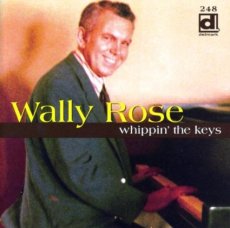
Daily Dose OF Jazz…
Wally Rose was born on October 2, 1913 in Oakland, California. A mainstay of the jazz scene in San Francisco during the 1940s and 1950s, he was the pianist in Lu Watter’s group, and the Yerba Buena Jazz Band, for its entire existence from 1939 to 1950. During this period he recorded for the Jazz Man imprint in 1941-42, did several albums for Good Time Jazz and also recorded for Columbia Records.
Following this tenure, through the 1950s Rose played with Bob Scobey and Turk Murphy then did mainly solo work for the rest of his career. He did an album in 1982, which was his first release as a leader in 24 years.
Wally Rose, jazz and ragtime pianist passed away on January 12, 1997 in Walnut Creek, California.
More Posts: piano
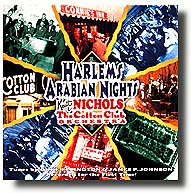
Daily Dose Of Jazz…
Keith Nichols was born on February 13, 1945 in Ilford, Essex, UK and took his first music lessons at age five on piano and accordion. As a youth he was a child actor and an award-winning accordionist, Great Britain Junior Champion in 1960.
He turned professional after graduating from Gulldhall School of Music, touring with the Levity Lancers for seven years playing trombone, piano and tuba. From the early 70s he has performed in concert ragtime at London’s South Bank, came to the U.S. in 1976 with Richard Sudhalter’s New Paul Whiteman Orchestra, recorded three solo albums for EMI and is a frequent sideman for the label and formed the Midnite Follies Orchestra focusing on the music of Duke Ellington and Cab Calloway.
He has gigged and recorded with Bing Crosby, arranged for the New York Jazz Repertory Company, Dick Hyman and the Pasadena Roof Orchestra, and has worked with Harry Gold, Digby Fairweather and Claus Jacobi.
The multi-instrumentalist, arranger and award-winning accordionist in his youth continues to perform and record prolifically in the UK, America and Europe with projects based in ragtime, and lectures at the Royal Academy of Music.


